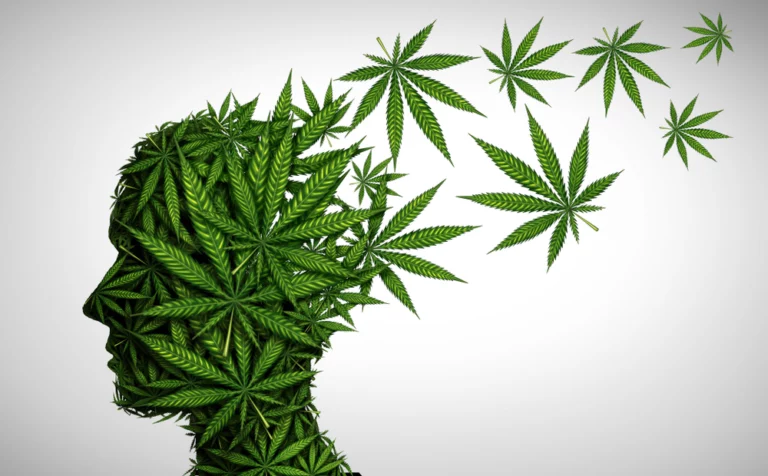As cocaine use continues to impact individuals across the nation, the methods of consuming cocaine are constantly changing. Some individuals may try eating cocaine to achieve stronger effects, unaware of the potential dangers of doing so. This article dives into the dangers of eating cocaine, focusing on not only the physical and mental health consequences but also the broader side effects that may impact individuals.
What is Cocaine?
Cocaine is a powerful stimulant drug that is derived from the leaves of the coca plant, which is native to South America. Cocaine is known for its rapid and intense stimulation of neurotransmitters, particularly dopamine, resulting in euphoric sensations, heightened energy, alertness, and self-confidence. However, its highly addictive nature is marked by short-lived effects, causing individuals to chase the initial euphoria by increasing doses and utilizing various methods of consumption. This then leads to tolerance and persistent cravings that can make quitting challenging, despite significant physical and mental health consequences.
According to the 2021 National Survey on Drug Use and Health, 4.8 million individuals used cocaine in the past year. Of these individuals, 3.5% are aged from 18 to 25 years old, highlighting the prevalence of cocaine use in young adults and the need to understand the dangers of eating cocaine.

Can You Eat Cocaine?
Yes, you can eat cocaine. Individuals may rub cocaine on their gums to test the purity or strength of the cocaine, resulting in them ingesting it orally. As an individual rubs the cocaine on their gums, it produces a numbing effect, with the more intense numb feeling meaning the purer the cocaine. While this is not a common form of cocaine use, it can still result in the individual experiencing the sought-after stimulating effects.
Learn More: Cocaine Comedown Vs. Withdrawal: Which Is Worse?
How Eating Cocaine Effects Your Physical Health
Eating cocaine can cause many different health risks to an individual, especially to the physical health of a person. Some of the potential physical health effects may include:
- Cardiovascular Effects: The stimulating effects of cocaine can lead to an increase in heart rate, blood pressure, and the risk of heart-related problems. This includes the potential for heart attacks, arrhythmias, and even sudden cardiac death.
- Gastrointestinal Issues: Eating cocaine may cause digestive problems, including abdominal pain, nausea, and potential damage to the digestive tract.
- Dental Health Problems: Cocaine can have a corrosive effect on the teeth and gums when it comes into direct contact with them. Rubbing cocaine on the gums, a common method of oral use can lead to dental issues, such as gum damage, tooth decay, and tooth loss.
- Weight Loss and Malnutrition: Cocaine use, including eating it, can suppress appetite and lead to weight loss. This can result in malnutrition and related health issues.
- Risk of Psychosis: In some cases, cocaine use can induce symptoms of psychosis, such as hallucinations, delusions, and disorganized thinking.

How Eating Cocaine Effects Your Mental Health
In addition to affecting individuals physically, eating cocaine can cause significant damage to their mental health. Some of the ways that eating cocaine can impact mental health can include the following:
- Euphoria and Alertness: Cocaine use typically leads to an initial feeling of intense euphoria, increased energy, and heightened alertness. However, this euphoric state is short-lived and is often followed by a “crash” or a period of low mood and exhaustion.
- Anxiety and Paranoia: Using cocaine is associated with heightened anxiety, restlessness, and sometimes extreme paranoia. Individuals may become excessively anxious and fearful, which can be stressful.
- Irritability and Agitation: As the effects of cocaine wear off, individuals may become irritable, agitated, and prone to anger. This can strain relationships and lead to impulsive or dangerous behavior.
- Depression and Dysphoria: Following the initial euphoria, the come-down from cocaine is often marked by feelings of depression, hopelessness, and overall dysphoria. This can lead to a cycle of seeking more cocaine to lighten these negative emotions.
- Mental Health Disorders: Long-term or heavy cocaine use can increase the risk of developing mental health disorders, including anxiety disorders, depression, and substance use disorders.
- Cognitive Impairment: Some long-term effects of cocaine use can impair cognitive functions, including memory, attention, and decision-making, making it challenging to carry out daily activities effectively.
- Addiction: Cocaine is highly addictive, and its use can lead to a loss of control over how much an individual uses. Addiction is a severe mental health issue that can disrupt various aspects of an individual’s life.
Read More: What You Should Know About Freebasing Cocaine
Other Side Effects of Eating Cocaine
Apart from the physical and mental side effects that can arise from eating cocaine, there are additional side effects to be aware of. These other side effects can include the following:
- Social and Relationship Issues: Cocaine use, in general, can strain personal relationships, leading to conflicts, arguments, and isolation from friends and family. Some individuals struggling with a cocaine addiction may prioritize drug use over their social relationships, resulting in the eventual breakdown of their support network.
- Financial Problems: Maintaining a cocaine habit can be financially hazardous. The cost of acquiring the drug can lead to financial instability, including debt or criminal activity to fund the addiction. This can be exacerbated by the need to use cocaine, as many individuals who are eating cocaine have developed an addiction.
- Legal Consequences: While possession of cocaine is illegal in many countries, the legal consequences may extend beyond just possession. Individuals who use or distribute cocaine may face more serious criminal charges, such as drug trafficking, which can result in severe legal charges.
While it may seem like eating cocaine will only affect the cocaine user, the impact of cocaine use can expand far beyond the individual. Drug abuse, especially cocaine abuse, can affect communities and society as a whole, resulting in the consequences outlined above. Understanding these consequences shows the urgency of addressing substance abuse and cocaine addiction through prevention measures, treatment programs, and support groups.

Cocaine Addiction Treatment In Knoxville, TN
If you or a loved one are contemplating eating cocaine or struggling with cocaine use at all, receiving the proper treatment is essential to living a healthy, sober life. At Knoxville Recovery Center, our addiction treatment programs provide holistic, individualized, and comprehensive treatment services to ensure we can address all aspects of addiction. With our programs, individuals can receive medical detox services, various addiction treatment services, aftercare preparation, and therapeutic nutritional support.
Contact us today to learn more about our treatment options and begin your journey to sobriety with us.








